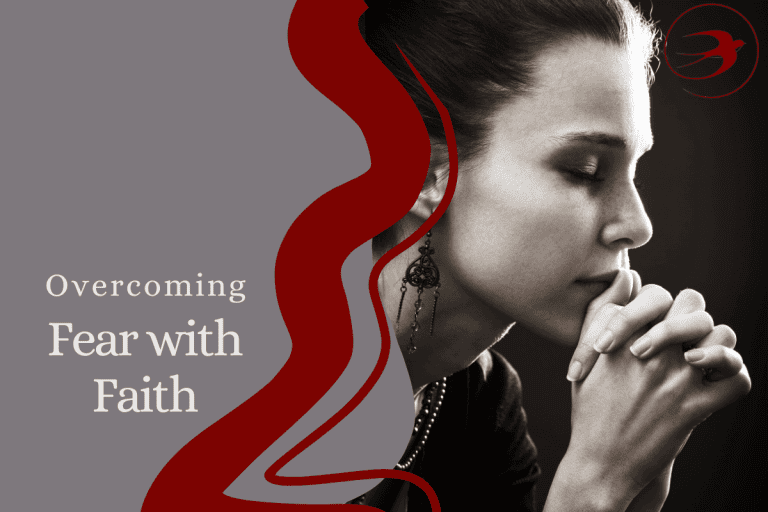Shame is one of the heaviest emotions we carry. It can make you feel small, unworthy, or like something is wrong with who you are. Many people live with shame without realizing it, hiding parts of themselves out of fear that others won’t accept them. But when we begin to understand what shame really is, healing can start.
Shame is that deep feeling that says, “I’m not good enough,” or “I’m bad.” Unlike guilt, which focuses on what we did, shame focuses on who we are. It often shows up when we feel rejected, judged, or compared to others. Shame can make us hide, isolate, or try to be perfect just to feel worthy of love. But even though shame feels powerful, it can be healed with awareness, compassion, and grace.
Healing from shame means learning to see yourself the way God sees you, worthy, loved, and enough. It’s about noticing the moments when shame shows up and gently reminding yourself that your mistakes or pain don’t define your value. With time, support, and faith, you can move from shame toward freedom, connection, and peace.
What Is Shame?
Shame is a deep, painful feeling that makes you believe something is wrong with who you are. It whispers lies like, “I’m not enough” or “I don’t deserve love.” Unlike guilt, which focuses on what we did, shame targets our sense of identity. This difference between shame and guilt matters, guilt can motivate change, but shame convinces us we’re beyond redemption. It often begins early in life through harsh criticism, rejection, or being told to hide our emotions. Over time, these experiences create a lasting sense of shame that shapes how we see ourselves and relate to others.
Shame is often hidden beneath perfectionism, overworking, or emotional withdrawal. Some people isolate, while others push themselves to prove their worth. You might notice you experience shame when replaying mistakes, comparing yourself to others, or feeling the need to hide your true self. This form of toxic shame keeps us silent and disconnected. But as researcher Brené Brown reminds us, shame loses power when it’s spoken. Healing begins when we name it, share it in safe spaces, and meet it with honesty and compassion. The moment you bring shame into the light, it starts to loosen its grip and make space for grace.
Why Does Shame Show Up?
Shame often shows up as a way to protect us, even though it doesn’t feel that way. When we experience rejection, judgment, or failure, our brain remembers that pain and tries to keep us from feeling it again. These feelings of shame convince us that hiding is safer than being seen. For example, someone who was often criticized as a child might grow up fearing mistakes and avoiding situations where they could fail. Over time, this becomes a habit, a quiet voice that says, “Stay small so you don’t get hurt.”
Shame may also appear when we compare ourselves to others or hold ourselves to impossible standards. You might think, “Everyone else seems to have it together except me,” but that’s shame’s voice, not truth. It thrives when we measure our worth by what others think instead of who God says we are. The good news is that awareness brings choice. When you notice shame rising, you can respond with compassion and faith, reminding yourself that you are already enough, fully loved, and created with purpose.
How Shame Affects Our Mind, Body, and Spirit
Shame doesn’t just live in our thoughts; it affects our whole being. When we carry shame, our mind often become filled with self-criticism and doubt. You might replay past mistakes or assume others see you the same way you see yourself. This can lead to anxiety, depression, or feeling disconnected from people you care about. Over time, the constant weight of shame can make even simple moments of joy or confidence feel hard to reach.
Our bodies also carry the impact of shame. You might notice tightness in your chest, stomach aches, or tension in your shoulders when you feel embarrassed or unworthy. These physical signs are your body’s way of showing emotional pain. Many people describe feeling small, heavy, or like they want to disappear when shame takes over. Paying attention to these signals helps you notice when shame is showing up, because you can’t heal what you don’t see.
Spiritually, shame can make us feel distant from God or unworthy of His love. It tells us lies that we must be perfect to be accepted. But the truth is, faith reminds us that we are already loved, no matter what we’ve done or how we feel. When we bring our shame into the light, through prayer, reflection, or talking with someone we trust, we open the door for healing, grace, and a renewed sense of peace.
Common Triggers of Shame
Shame can show up in many moments, often when we least expect it. Understanding what triggers it can help you recognize when it’s trying to take over. Once you notice these triggers, you can respond with curiosity instead of criticism and start replacing shame with compassion and truth.

1. Making Mistakes or Failing
It’s easy to feel shame when we make mistakes or fall short of our goals. You might think, “I should’ve done better,” or “I can’t believe I messed that up.” These thoughts can make you believe that your worth depends on always getting things right. But the truth is, everyone makes mistakes, it’s part of learning and growing.
Shame turns mistakes into proof that something is wrong with you, but that’s not true. Failing at something doesn’t make you a failure. When you catch yourself thinking this way, pause and ask, “What would I say to a friend who made the same mistake? ” That kindness is what helps shame lose its power.
2. Being Rejected or Criticized
Rejection and criticism can cut deep, especially if you’ve been hurt or judged before. When someone doesn’t accept you, it can trigger old beliefs like “I’m not good enough” or “Something must be wrong with me.” These thoughts can make you want to pull away or stop trying altogether.
It’s important to remember that other people’s opinions don’t define your worth. Rejection happens to everyone, but it doesn’t mean you’re unworthy of love or belonging. Remind yourself, “Their response doesn’t change who I am.” Choosing to believe that truth helps you heal and stay connected.
3. Comparing Yourself to Others
Shame often shows up when we compare our lives to other people’s. You might see someone’s success or happiness and think, “Why can’t I be like that? ” This kind of comparison feeds the idea that you’re falling behind or not enough.
The truth is, we rarely see the full story behind someone else’s life. Everyone faces struggles, even if they don’t show it. When you focus on your own path and progress, you begin to feel freer. Gratitude for where you are, right now, helps quiet the voice of shame.
4. Past Trauma or Unmet Expectations
Painful experiences like abuse, neglect, or broken trust can leave deep emotional scars. You may have learned to blame yourself for things that were never your fault. Shame can also show up when your life doesn’t match what you expected or hoped for, leaving you feeling like you failed.
Healing from this kind of shame takes time and gentleness. It helps to talk about your pain in a safe space, like therapy or prayer. When you start seeing your story through compassion instead of blame, you begin to understand that your past does not define who you are or where you’re going.
Healing from Shame Toward Self-Compassion and Grace
Healing from shame begins with awareness and gentleness. You can’t change what you don’t notice, so start by naming when shame shows up. Instead of judging yourself for feeling it, try saying, “This is shame, and I don’t have to believe everything it tells me.” Learning to respond with kindness rather than criticism helps your mind and heart slowly heal. Remember, you are not the things you’ve done or what others have said about you, you are a person worthy of love and understanding.
Faith can also play a powerful role in healing. Shame tells us we must be perfect to be loved, but grace reminds us that love is given freely, not earned. You might find comfort in prayer, journaling, or reading Scripture that speaks to your worth and identity in God. Healing doesn’t happen overnight, but each small step, like sharing your story, forgiving yourself, or reaching out for support, brings you closer to peace and freedom.
Final Thoughts
Letting go of shame is not about forgetting your past or pretending the pain never happened. It’s about learning to see yourself through a lens of compassion and grace. Shame loses its power when you begin to replace judgment with understanding and fear with faith. Remember, every time you choose kindness toward yourself, you’re taking another step toward healing. Healing doesn’t mean becoming someone new; it means coming home to who you truly are.
You don’t have to carry shame alone. Reaching out for help, whether through therapy, faith, or trusted relationships, can open the door to healing and connection. You deserve to live free from the weight of shame and to know that you are deeply loved, just as you are. If you’re ready to take that next step, reach out today. Your journey toward peace and freedom can start now.
Blessings,




